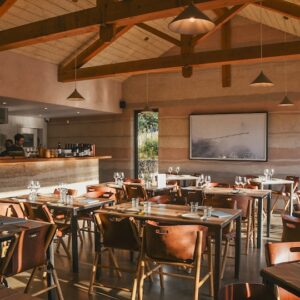
Deputy Front of House Manager
This is a fantastic opportunity for a dynamic, enthusiastic, talented and passionate manager looking for a new challenge and to make a difference to the
Home / A sad farewell to Bramber the beaver
It is with great sadness and disappointment that Knepp Estate announces the death of Bramber the beaver on 13 Jan 2021, shortly after recapturing him from his travels down the River Adur. The University of Surrey’s Veterinary Pathology Centre’s autopsy report has identified septicaemia as the cause of death. This was most likely due to a bacterial infection contracted through ingesting contaminated food or vegetation in the days or even weeks prior to his re-capture. Although this is a natural cause of death for many wild mammals, this is an unhappy end to Bramber’s great adventure. The hope is, however, that his legacy will live on having provided so many people who sighted him over the last few weeks with great joy, and a glimpse of a charismatic animal that has been missing from the Sussex countryside for over 400 years.
Bramber – so-called after his first post-escape sighting near the village of Bramber on the River Adur – is one of two beavers from Scotland introduced into the Knepp rewilding project last November in partnership with the Sussex Wildlife Trust. While licences for other beaver releases in England (including at nearby National Trust’s South Downs Estate) stipulate release into a physical enclosure, the Knepp license allows the release of beavers into a larger, semi-enclosed area. This is to help devise a method whereby beavers – a keystone species, and hugely important for biodiversity and flood mitigation – can, ultimately, be successfully introduced into larger, strategic areas in England.
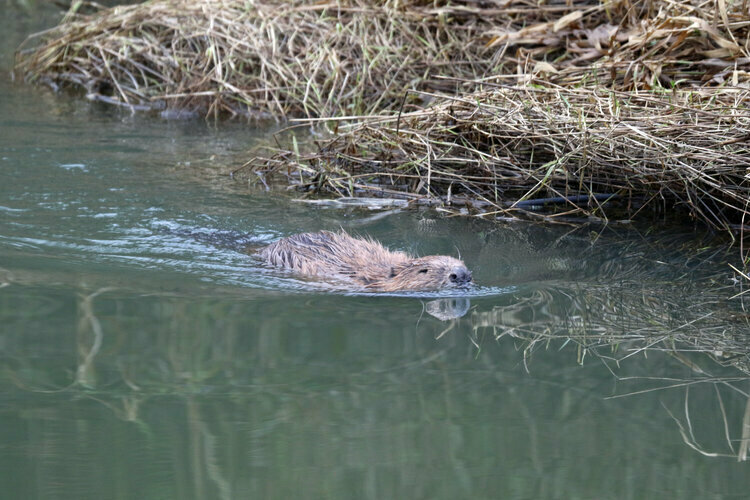
The early escapes of both Bramber and the female – named ‘Billie’ by members of the local angling club on whose pond she was safely recaptured – show that Knepp’s £45,000-worth of reinforced fencing and barriers across ditches, culverts and streams leading out of the project were, unfortunately, not enough to deter them from exploring.
Sightings of Bramber on the River Adur, 12 miles and 20 weirs away from Knepp, began in the last weeks of December 2020, from areas around Henfield, Twineham, Steyning and the Shoreham Cement Works, often miles apart on the same day. Walkers and anglers spotted him swimming but also grazing on the riverbanks. Photos and videos, with excited commentaries, started to roll in, but with Bramber covering so much ground it was impossible to attempt to catch him. Eventually, as hoped, he settled in one spot, on a pond with rich riparian vegetation on an organic farm on the upper reaches of the Adur at Wineham where Penny Green, Knepp’s ecologist, spent several days quietly observing him in order to learn his habits and work out where best to set the trap for his recapture. In the company of several anglers, Penny watched him gnawing off a branch of willow and pulling it to his favourite feeding spot where he stripped off the bark.

A few days later, after the icy weather had subsided, Penny set a big Bavarian beaver trap with apples and carrots (beavers’ favourite treats); and Bramber couldn’t resist. He was transported back to Knepp but seemed a little subdued and lethargic on arrival, reluctant to leave the carrying crate. He was eventually moved into the stable – his temporary home – stocked with straw, food, willow branches and water trough but, to the great sadness of Penny and the Knepp team, he died in the night.
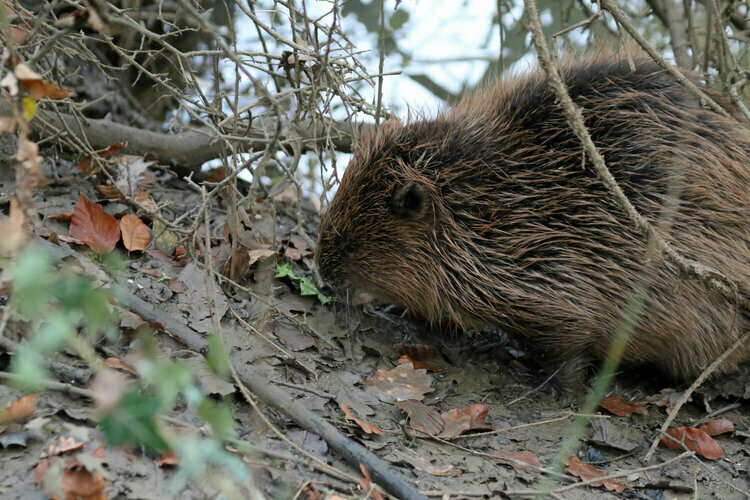
Billie the female beaver remains in captivity at Knepp pending relocation to a licensed beaver enclosure. Meanwhile, having studied the movements of the beavers over hours of trail cameras, the team at Knepp are planning the appropriate adjustments to the fencing – work that will be carried out in the spring when the ground dries out – with the aim of releasing another two beavers, this time hopefully a bonded pair, later in 2021.
Knepp Estate and the Sussex Wildlife Trust would like to extend a huge thanks to everyone who sent in reports of sightings and who shared their excitement at seeing beavers in the Sussex landscape again. Posts of Bramber on Sussex Wildlife Trust’s Facebook page were the most shared/liked posts of the year, with 70% of respondents hugely supportive of the beaver reintroduction project.
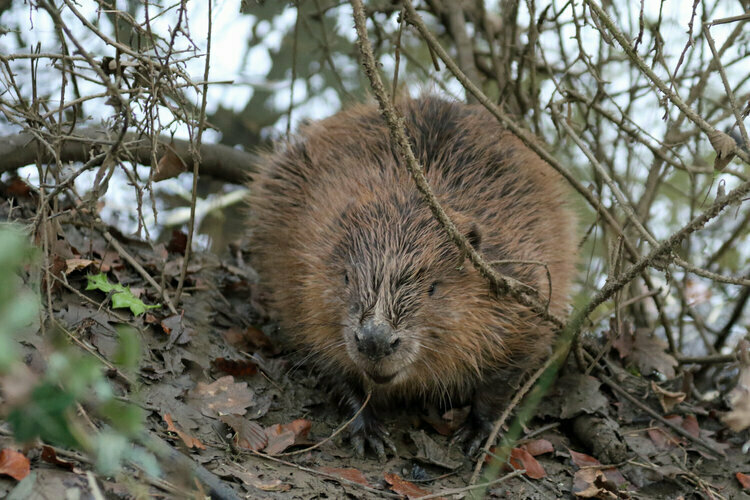

This is a fantastic opportunity for a dynamic, enthusiastic, talented and passionate manager looking for a new challenge and to make a difference to the

The year begins by plummeting us into a deep freeze – snow and ice lay over the country for a week, shadowed by biting arctic
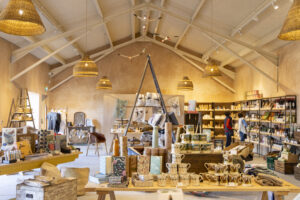
We are looking for an engaging and passionate Shop Manager to join our team and help take the shop in exciting new directions, including possibly
Knepp Wildland Safaris, our gardens and campsite are all about the quiet and patient observation of nature.
Some of the species we are likely to encounter are shy or can be frightened by loud noises or sudden movements. Our campsite with open-air fire-pits, wood-burning stoves and an on-site pond is unsuitable for small children.
For this reason, our safaris, garden visits, holiday cottages and campsite are suitable only for children of 12 and over.
You’ll receive relevant offers and news by email. This will include information about the Rewilding Project, online store products, the Wilding Kitchen Restaurant / Cafe, and other exciting experiences / events across the Knepp Castle Estate. For more information, view our Privacy Policy.